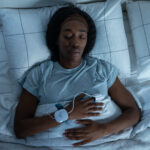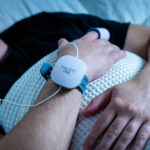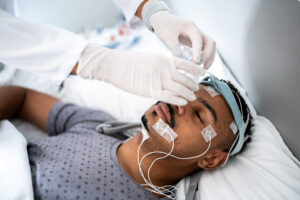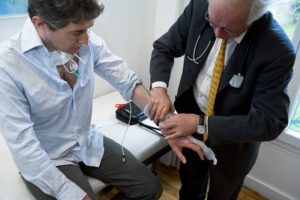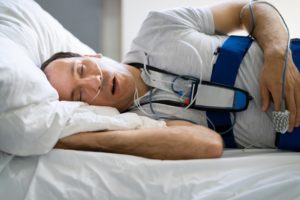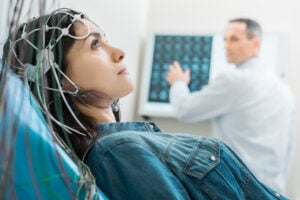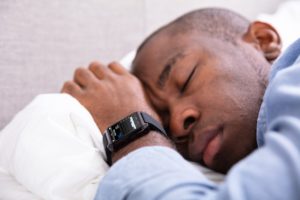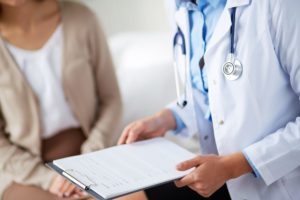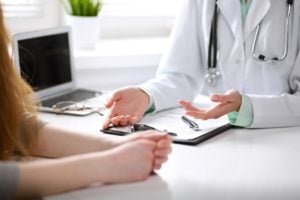When you buy through our links, we may earn a commission. Products or services may be offered by an affiliated entity. Learn more.
What if I Can’t Sleep During a Sleep Study?
- Difficulty sleeping during a sleep study is common due to the monitoring equipment and unfamiliar environment of the clinic.
- Give yourself time to wind down, practice relaxation techniques, and communicate with clinic staff for a more comfortable experience.
- Even if your sleep is interrupted, the data collected can still provide valuable insights for diagnosis and treatment.
A sleep study can help diagnose sleep-related disorders and determine what affects a person’s sleep. But people who have never undergone sleep testing might have concerns about whether they will be able to sleep during the test. Some sleepers may feel out of their comfort zone during the study, especially if they sleep at a sleep center rather than in their beds.
Knowing how to prepare for a sleep study, including what to avoid beforehand and how to practice healthy sleep habits, can help individuals ensure a successful test.
Our Recommended At-Home Sleep Apnea Test
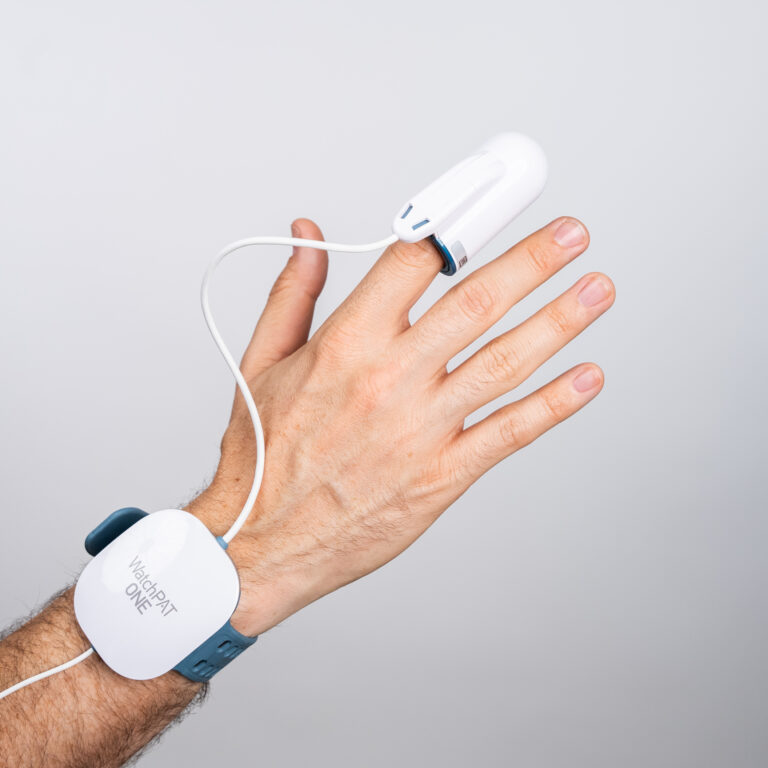
our partner at sleepdoctor.com
45% off a Home Sleep Test
Shop Now“Truly grateful for this home sleep test. Fair pricing and improved my sleep!”
Dawn G. – Verified Tester
What to Expect During a Sleep Study
A sleep study helps sleep specialists gather information about a person while they sleep. The test typically evaluates a range of sleep-related metrics, including sleep stages, partial or total pauses in breathing, total sleep time, and how long it takes to fall asleep.
Sleep studies also measure bodily functions such as heart rate, oxygen levels in the blood, and leg movements to help identify sleep apnea, narcolepsy, or restless legs syndrome.
Sleep studies may occur at a person’s home or in a sleep center under the supervision of a health care provider. A person typically undergoes a sleep study at a time that aligns with their usual sleep schedule.
Because sleep studies evaluate a person’s typical sleep quality, they are generally full-night procedures. For a sleep study performed at a sleep center, a person must get at least two hours of sleep for enough data to be gathered.
At a sleep center or hospital, a technologist places electrodes on a person to record body functions and sleep variables. Cameras may also record a person’s movements while they sleep.
For an at-home sleep study, a person uses a monitoring device that records sleep data, often for several nights. Before falling asleep, they connect electrodes to themselves based on their doctor’s instructions.
How to Prepare for a Sleep Study
It is important to know how to prepare for a sleep study to ensure accurate results, whether you complete the study at home or in a sleep center.
On test day, keep alcohol and caffeine consumption to a minimum, as they can affect your sleep. For a nighttime study, it is best to stop drinking alcohol and caffeinated beverages before lunchtime. If you are undergoing a daytime study, avoid caffeine for several hours before your scheduled test.
Also, try not to nap on the day of your test. Napping can make it more difficult to fall asleep for your sleep study.
Your provider may also tell you to avoid using hair and skin products like makeup, gels, or lotions on the day of the sleep study. These products can affect how the electrodes gather data while you sleep.
If sleeping at a sleep clinic, pack a bag that includes any items you use as part of your usual bedtime routine. For example, you might bring a book, cozy pajamas, and a favorite blanket. Pack your toothbrush, hairbrush, change of clothes, water bottle, and anything else you might need before bed or in the morning.
Finally, discuss any questions with your health care provider at least a day or two before your test. If you are currently using any medications or supplements, be sure to ask whether you should continue taking those leading up to your sleep study. Your health care provider may also be able to offer suggestions for a successful sleep study.
What to Do if You Can’t Sleep During a Sleep Study
Although laboratory sleep studies typically take place in an environment conducive to quality sleep, you still might find it challenging to fall asleep or stay asleep in a new place. Several strategies can help ensure you get the sleep you need for an accurate sleep study.
You can speak with a technologist at any point during the monitoring process. They can offer suggestions or ask for assistance from a sleep specialist or your doctor to help you get to sleep. In some cases, sleep specialists at the lab might offer you a sedative if you have trouble sleeping.
“I often tell my patients to not try too hard to sleep on the night of the test.”
Dr. Abhinav Singh, Sleep Physician
Your health care provider might ask you to return for another study if they did not get enough data to evaluate your sleep. If you did not schedule your first study during your typical sleeping hours, you should align your next visit with your usual sleep schedule.
If an in-lab sleep study did not work for you, you could also ask your doctor if you can complete an at-home sleep study instead. Obstructive sleep apnea can often be diagnosed this way, but the diagnosis of other sleep disorders requires in-person sleep studies. At-home sleep studies can be challenging if you are uncomfortable sleeping with electrodes on your body, but you may sleep better in your own sleep space.
Tips to Help You Sleep During a Sleep Study
Getting enough sleep for an accurate sleep study is important. You can try a few things to help yourself fall asleep and stay asleep.
- Ask about sleep medications: If you typically experience insomnia at home or are anxious about the study, consider asking your doctor about taking sleep medication before your test to help you fall asleep. Be sure to only take what your health care provider prescribes or suggests, as some medications can interfere with the accuracy of your results.
- Avoid electronics: With both at-home and in-lab sleep studies, avoid using electronic devices if you cannot sleep. The blue light from screens can interfere with your ability to fall back to sleep. Also, try not to look at a clock . Doing so can aggravate you when you are having trouble sleeping, which can further postpone sleep.
- Use relaxation techniques: Try deep breathing by inhaling slowly, holding your breath for a few seconds, and exhaling slowly and mindfully. Progressive relaxation may also help you fall asleep or get back to sleep after waking. Start at your head or feet, tightening and relaxing one group of muscles at a time throughout your whole body.
- Maintain your routine: Stick to your bedtime routine as much as possible, whether you’re sleeping in a sleep center or at home. For example, if you usually shower, get dressed, and brush your teeth, follow that same routine before your sleep study.
- Wind down: Read a book or listen to calming music to prepare for bedtime. Also, avoid exercise and other stimulating activities for at least two hours before bed.
- Don’t try too hard: Often in a lab study, a sampling of sleep in different stages and postures, rather than a perfect eight hours of sleep, is enough to make a good

Still have questions? Ask our community!
Join our Sleep Care Community — a trusted hub of sleep health professionals, product specialists, and people just like you. Whether you need expert sleep advice for your insomnia or you’re searching for the perfect mattress, we’ve got you covered. Get personalized guidance from the experts who know sleep best.
References
5 Sources
-
Gerstenslager, B., & Slowik, J. M. (2022, August 8). Sleep study. In StatPearls. StatPearls Publishing., Retrieved March 17, 2022, from
https://www.ncbi.nlm.nih.gov/books/NBK563147/ -
National Heart, Lung, and Blood Institute. (2011, August). Your guide to healthy sleep., Retrieved March 15, 2023, from
https://www.nhlbi.nih.gov/health-topics/all-publications-and-resources/your-guide-healthy-sleep -
MedlinePlus: National Library of Medicine (US). (2021, August 9). Sleep study., Retrieved March 13, 2023, from
https://medlineplus.gov/lab-tests/sleep-study/ -
Kramer, N. R., & Millman, R. P. (2022, November 15). Overview of polysomnography in adults. In S. M. Harding (Ed.). UpToDate., Retrieved March 13, 2023, from
https://www.uptodate.com/contents/overview-of-polysomnography-in-adults -
Krakow, B., Krakow, J., Ulibarri, V. A., & Krakow, J. (2012). Nocturnal time monitoring behavior (“clock-watching”) in patients presenting to a sleep medical center with insomnia and posttraumatic stress symptoms. The Journal of Nervous and Mental Disease, 200(9), 821–825.
https://pubmed.ncbi.nlm.nih.gov/22932731/


